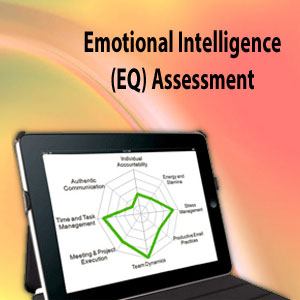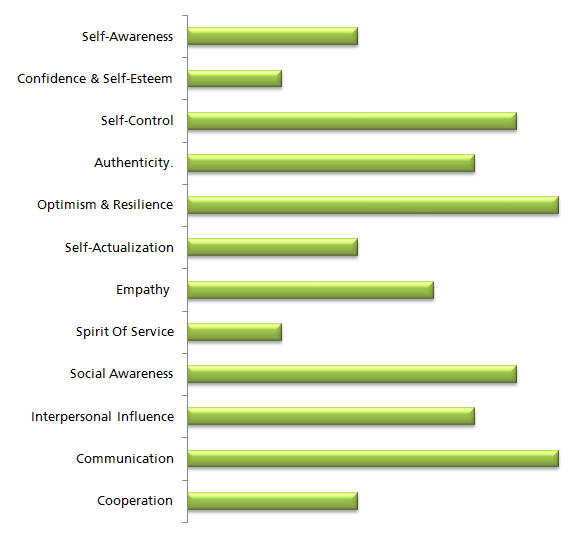
Description
What exactly is “Emotional Effectiveness”—and why should you care?
It is easy to dismiss the role that emotions play in the cold hard reality of modern business life, and even in our personal lives many feel that focusing too much on “feelings” gives people an excuse to behave irrationally. But the coldest, hardest truth is that, like it or not, emotions play a major role in every area of our lives—for all of us—and wishing it wasn’t so accomplishes nothing.
The term “emotional intelligence” has been used by many leading researchers to describe a form of social intelligence that involves the ability to monitor feelings and emotions (of yourself and others) and to use this information to guide your thinking and action. Extensive research on the subject has determined that those who exhibit a high degree of emotional intelligence tend to be more fulfilled and productive than others in every area of their lives: personal, professional, and family.
This online self-assessment helps you pinpoint the specific behaviors, skills, habits and attitudes you can develop for improved emotional effectiveness. 12 behavior/competency categories (see example below) are presented in a graphical representation of each individual’s unique strengths and development opportunities.
While cognitive intelligence (IQ) has traditionally been viewed as a key indicator of future personal and professional success, it is not, by itself, a very good predictor: most of us can think of many examples of individuals who are exceptionally bright and gifted, yet are also remarkably ineffective and unproductive.
Emotional Intelligence is essentially the non-cognitive capacity to create positive outcomes in your relationships with others and with yourself.
Emotional intelligence (EQ) has been shown to be a consistent predictor of personal and professional achievement. Today emotional intelligence is viewed in many leading organizations as a key indicator of potential job performance.
The term “Emotional Effectiveness” refers to specific skills, habits and attitudes: the personal and social skills that lead to superior performance. By developing or enhancing these skills, you can significantly improve your capacity for personal and professional success. To maximize your effectiveness in practically any situation—as a parent, employee, team member, friend, spouse, partner, leader, etc.—it is vital that you have a clear, conscious understanding of your personal values and goals along with your emotional strengths and development opportunities.






